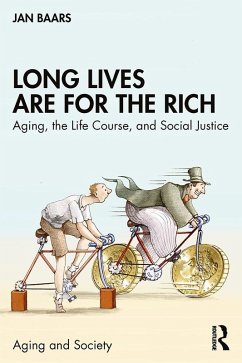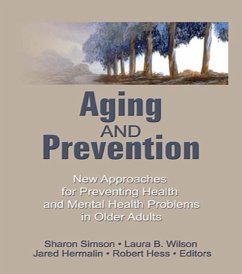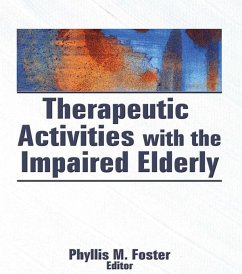
Long Lives Are for the Rich (eBook, PDF)
Aging, the Life Course, and Social Justice
Versandkostenfrei!
Sofort per Download lieferbar
38,95 €
inkl. MwSt.
Weitere Ausgaben:

PAYBACK Punkte
19 °P sammeln!
Long Lives Are for the Rich is the title of a silent ominous program that affects the lives of millions of people. In all developed countries disadvantaged and, especially, poor people die much earlier than the most advantaged. During these shorter lives they suffer ten to twenty years longer from disabilities or chronic disease. This does not happen accidentally: health inequalities - including those between healthy and unhealthy life styles - are mainly caused by social inequalities that are reproduced over the life course. This crucial function of the life course has become painfully visibl...
Long Lives Are for the Rich is the title of a silent ominous program that affects the lives of millions of people. In all developed countries disadvantaged and, especially, poor people die much earlier than the most advantaged. During these shorter lives they suffer ten to twenty years longer from disabilities or chronic disease. This does not happen accidentally: health inequalities - including those between healthy and unhealthy life styles - are mainly caused by social inequalities that are reproduced over the life course. This crucial function of the life course has become painfully visible during its neoliberal reorganization since the early 1980s. Studies about aging over the life course, from birth to death, show the inhumane consequences as people get older. In spite of the enormous wealth that has been piled up in the US for a dwindling percentage of the population, there has been growing public indifference about the needs of those in jobs with low pay and high stress, but also about citizens from a broad middle class who can hardly afford high quality education or healthcare. However, this ominous program affects all: recent mortality rates show that all Americans, including the rich, are unhealthier and dying earlier than citizens of other developed countries. Moreover, the underlying social inequalities are tearing the population apart with nasty consequences for all citizens, including the rich. Although the public awareness of the consequences has been growing, neoliberal policies remain tempting for the economic and political elites of the developed world because of the enormous wealth that is flowing to the top. All this poses urgent questions of social justice. Unfortunately, the predominant studies of social justice along the life course help to reproduce these inequalities by neglecting them. This book analyzes the main dynamics of social inequality over the life course and proposes a theory of social justice that sketches a way forward for a country that is willing to invest in its greatest resource: the creative potential of its population.
Dieser Download kann aus rechtlichen Gründen nur mit Rechnungsadresse in A, B, BG, CY, CZ, D, DK, EW, E, FIN, F, GR, HR, H, IRL, I, LT, L, LR, M, NL, PL, P, R, S, SLO, SK ausgeliefert werden.













